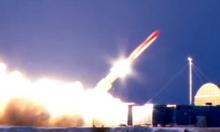Dmitry Litvinovich: Nuclear games of India and Pakistan, or who owns Kashmir
Another tension of relations between India and Pakistan can result in the fourth war between the two countries. The Indian authorities claimed a bit earlier, they had the information, proving that the terrorist groups Jaish-e-Mohammed and Lashkar-e-Toiba were involved in the attack on the parliament, which was carried out on December 13 (these two groups are based on Kashmir’s territory, which is controlled by Pakistan).
In this connection the Indian Foreign Ministry sent a note to Islamabad with a requirement to arrest the leaders of those groups and freeze the accounts of those organizations. The relations between Pakistan and India became more tense after the act of terrorism in Delhi, when twelve people died as a result.
As the Frontier Post newspaper wrote, India charged Pakistan of supporting the Muslim militants from the mentioned extremist groups, which allegedly, like Delhi asserted, were behind the assault on the Indian parliament. The Indian authorities demanded the representative offices of those organizations should be closed within several days and the leaders of the Kashmir gunmen – arrested. Islamabad in its turn is demanding India should prove those organizations are connected with the incident in Delhi.
President Pervez Musharraf appeared on the national TV on Saturday and called upon India “to abstain from the impulsive acts, which could lead to very serious consequences.” Musharraf also condemned the act of terrorism in Delhi: “We condemn terrorism and the acts of terrorism in any part of the world,” – the Pakistani president said.
There is some information, which said that India deployed the additional army contingent in Kashmir and Pakistan ordered the border guards and the regular army to be all set and alert.
Jammu & Kashmir is a state in India. It is a large state and was ruled by a Maharaja (Indian King) in the past. Jammu & Kashmir is made up of many regions but is called "Jammu & Kashmir" because the two most populous regions in the state are called Jammu and Kashmir. This territory is basically populated by the Muslims – 70% and 30% - the Hindus. The total square of the territory is about 222 thousand square kilometers, and one-third of this area is illegitimately occupied by Pakistan.
There can be three stages of the conflict between India and Pakistan distinguished:
1947 – 1956 1965 – 1972 1984 – 1995
Nowadays the conflict is taking a new quality, since both of the countries publicly showed their nuclear weapon and demonstrated the determination to follow their plans and interests.
The story of the first conflict is as follows. Great Britain granted independence to the British India in August of 1947, having divided it into India and Pakistan. 560 states got their freedom to join one of the new countries Pakistan decided to show pressure on Maharaja, who ruled Jammu and Kashmir with a goal to make him join his state to Pakistan. The vital deliveries were stopped for that, the state was totally isolated from the whole world. But the Maharaja did not yield. Then Pakistan organized and sent the hordes of nomadic tribes from the north-western border territory of Pakistan to plunder Jammu and Kashmir. The rioters were moving inland Baramullah – the largest commercial center of the region. The following days were all filled with violence, they had no mercy for anyone. Of course that was not incidental, the absence of the British troops in the area, populated with the tribes, left those people without any means tosurvive. The Pakistani government feared, lest they should plunder Peshawar and other large cities of Pakistan. That is why they were told to move towards Kashmir, guaranteeing them generous gifts, if they steal and kill. The Pakistani authorities were hoping to gain the double profit from that: a possibility to get rid of the tribes and make Kashmir kneel over.
Pakistan sent its spies to Jammu and Kashmir too so that they could destroy the bridges and put obstacles on the way of the Indian army, if the military men decide to get into the state. The irony of this situation is that the stealing and violence saved the state from Pakistan’s occupation. The gangs did not really want to go further inland the state, until they plundered everything and this gave time for a popular political party of Jammu and Kashmir to ask the Indian authorities for help.
On October 27 the first contingent of the Indian army entered Jammu and Kashmir. In February of 1948 the UN Security Council acknowledged Jammu and Kashmir’s annexation to India. The procedure of the state power arrangement was over in the state in November of 1956, when the Constitutional Assembly of the state passed the Constitution and ratified Jammu and Kashmir’s membership in India.
It seemed it was all over, but India did not wish to execute the resolution for some reason and several years after it even refused to discuss this issue with Pakistan. After the border war with China in 1962, India agreed to conduct the negotiations with Pakistan (under the USA and Great Britain’s pressure). There were six rounds of negotiations carried out in 1963 between the foreign ministers of India and Pakistan, but they were over with nothing. In 1965 Pakistan started the operation Gibraltar, which resulted in a large scale war between the two countries.
The world community interfered again with a goal to stop the war. In January of 1966 there was the Tashkent agreement signed. It did not bring any positive results and in four years, in November – December of 1971 another war started between India and Pakistan. After the military actions were over, the premiers of the countries signed another agreement in 1972, in which they took on the responsibility to settle all moot questions, including the Kashmir problem, by means of the peaceful negotiations.
The local conflict is still going on. All the efforts of the world community did not bring any good results. During the opposition between two super-powers, the USA and the USSR, India was in the interests of the latter, and surely the Soviet Union was on India's side in the Indian-Pakistani conflict. After the USSR collapsed, the political contacts became formal without the warmth of the previous years; the economic links faded away totally.
The western countries took a dubious position in connection with the escalation of the Indian-Pakistani conflict. London was on India’s side. America had close contacts with Pakistan. When the cold war was over, America’s interest in Pakistan dimmed out, but when the anti-terrorist operation started in Afghanistan, the USA paid its attention to its ally from the past again. The USA said it would regulate the Kashmir problem, taking account of Pakistan’s interests. It is too early to say, if the American mission will be a success, taking into consideration the events in the Middle East.
Dmitry Litvinovich PRAVDA.Ru
Translated by Dmitry Sudakov
CNN Graphic
Subscribe to Pravda.Ru Telegram channel, Facebook, RSS!




